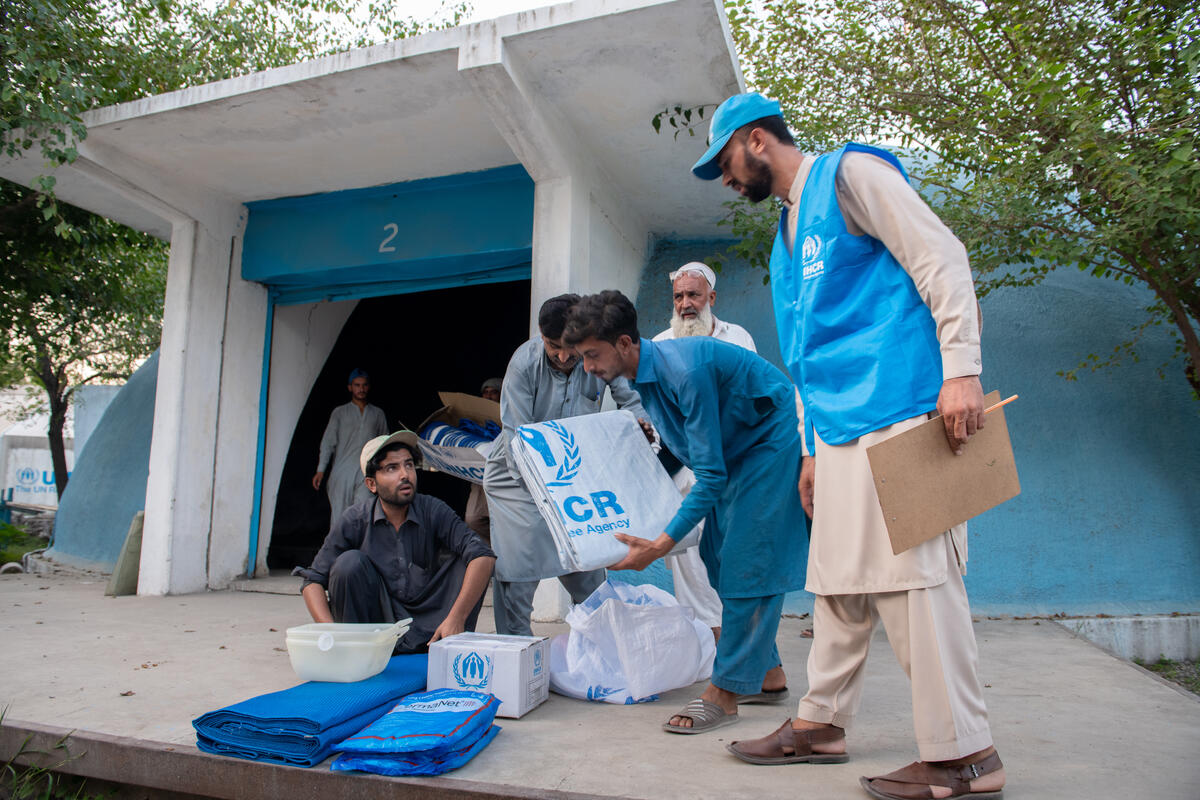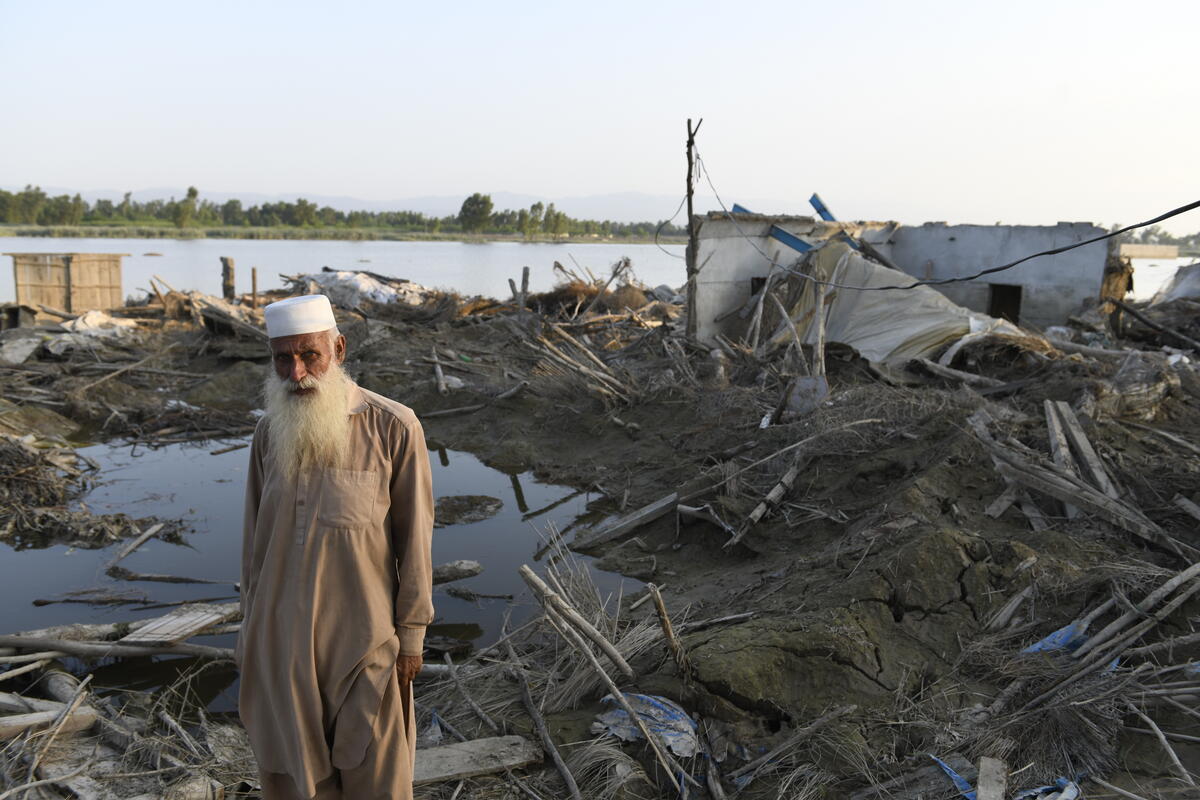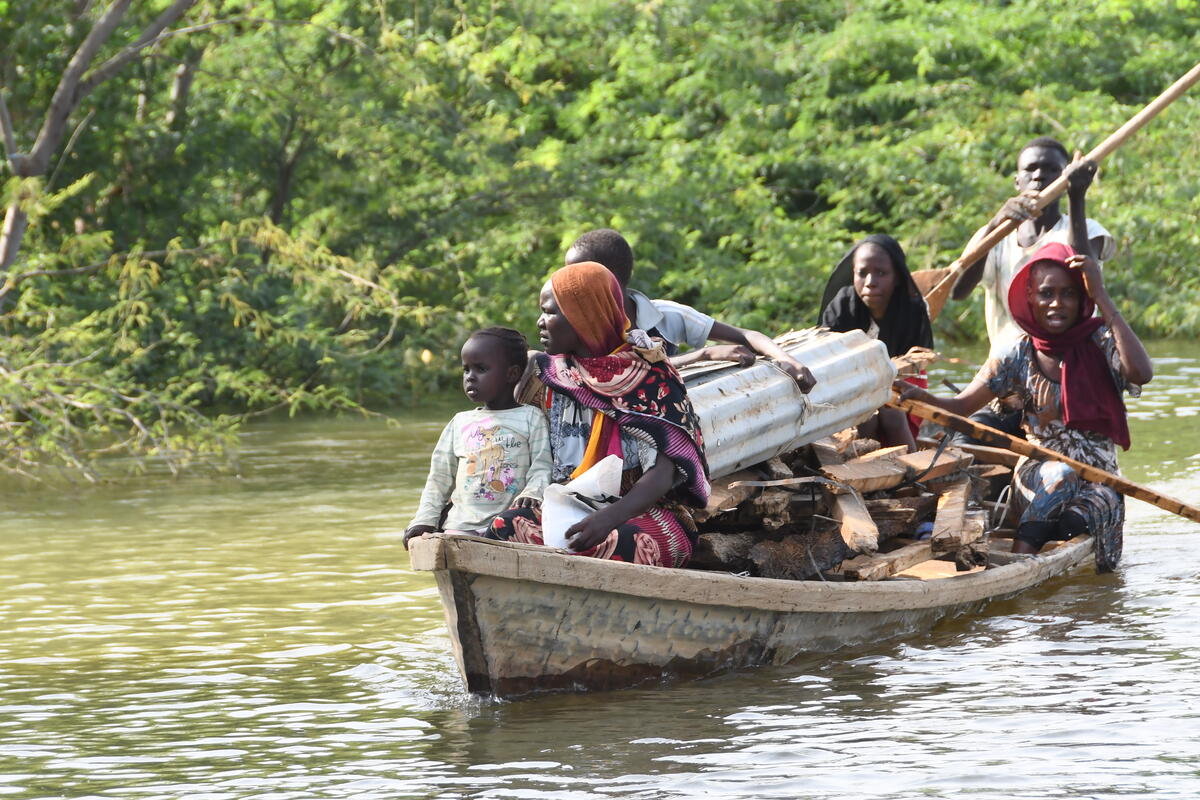Floods cause havoc in north-east Kenya refugee camps for Somalis
Floods cause havoc in north-east Kenya refugee camps for Somalis

DADAAB, Kenya, November 13 (UNHCR) - Heavy rains in north-east Kenya have killed at least two Somali refugees, left thousands without shelter and cut a key supply route to refugee camps in the town of Dadaab.
Eddie Gedalof, UNHCR's acting representative in Kenya, said a pregnant woman and a child had drowned in the floodwaters, adding that as of Sunday more than 12,000 Somali refugees had lost their simple shelters at the Ifo camp and more than 600 in the Dagahaley settlement. Many had moved to drier areas.
UNHCR and its partners have since Saturday been assessing damage and determining needs of the Somalis, who have fled instability in their own country. There are fears that a general fortnightly food distribution - due to start on Wednesday - might have to be rescheduled, particularly in hard-hit Ifo.
UNHCR staff said a mass information campaign would be launched to inform refugees to conserve their food stocks and to avoid drinking floodwater. A number of latrines have overflowed and collapsed, leading to concerns about the spread of waterborne diseases. Parents have been told to stop their children from swimming in stagnant water.
The heavy rains and floods have cut roads linking the two camps - which together hold some 90,000 people - as well as the key 100-kilometre-long highway between Dadaab and the district seat of Garissa. Road convoys to Dadaab must go along this road, and UNHCR will use now aircraft to get assistance to the refugees in Dadaab.
In Nairobi, staff of the refugee agency were on Monday urgently preparing to airlift emergency supplies to Dadaab, including plastic sheets and mats. Fuel might also have to be flown to the camps, where gas is needed to run vehicles and the generators needed to power offices, the hospital and water pumps. MSF-Suisse has been asked to provide high energy biscuits for those who have lost their belongings in the flood.

The flooding has also affected an integration programme for refugees who have newly arrived from Somalia seeking asylum in Kenya. Some of the resources earmarked for the new arrivals might have to be diverted to help in this new emergency.
The weather also disrupted the transfer of hundreds of refugees to Dadaab from the Liboi reception centre on the Kenya-Somalia border. More than 1,200 refugees had been authorised to move to Dadaab after being fingerprinted under new security measures aimed at preventing fraudulent asylum claims. Some 600 had been moved before the rains came and made the roads impassable between the border and the Dadaab camps.
Since the beginning of the year, more than 32,000 Somali refugees have fled to Kenya to escape conflict in the south and centre of their country. The total population of refugees in Dadaab's three camps now stands at 160,000 people, the majority of them from Somalia.








